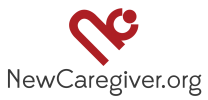Caring for a loved one with a degenerative disease like Alzheimer’s is a full time job. And it’s one that many adult children and grandchildren take very seriously. To the point of affecting their own health and happiness – the Mayo Clinic has a rather extensive article on the subject here. But when your life is on the line, it’s time to step back and remember that you can’t care for another if you don’t care for yourself.
Fitness first
When you’re caring for someone with Alzheimer’s, stress is simply part of the package. You can combat some of the negative consequences of chronic mental and emotional pressure by giving yourself a few minutes each day to focus on your physical health. Your level of physical activity correlates directly with your own risk of disease and ability to meet everyday obligations – including those associated with your sick loved one. According to the University of Minnesota, exercise may reduce your risk of high blood pressure and depression, both of which are associated with stress.
If you don’t want to invest in an expensive gym membership (and don’t want to leave your loved one), you can sneak physical fitness into your daily routine. It’s not difficult to fit 10 minutes of physical activity into your hectic schedule. Anna Almendrala, HuffPost’s Senior Healthy Living Editor, says to work out in short bursts: before your shower, while waiting in line, or by simply taking the long way into the grocery store or doctor’s office.
Mental clarity
While your mind remains active focusing on the day-to-day health and hygiene of the person in your care, it never really gets break or an opportunity to recharge. However, even if you can’t take an extended vacation, you can practice mind-soothing techniques that will not only help you feel better but put you in tune with your needs and those of your loved one. The AARP recommends finding a creative outlet, practicing visualization and healing breaths, or simply going for a walk. If you have pets, consider taking Fido for a trek around the neighborhood. Spending time with your favorite furry friend is another way to ease anxiety and help you get ahead of depression, which is surprisingly common among caregivers.
Yes, you have time
In the midst of caring for your sick relative, you may feel as though you simply don’t have the time to do anything for yourself. Thankfully, you can prioritize your mental and physical health without taking away from your dependent. If possible, delegate certain tasks to other family members: laundry, lawn care, and taking care of the person’s pets come to mind. If you can’t find another family member to help, you can always outsource a few of these chores. While it may cost you a few dollars (dog walking, for example, starts around $15 per walk), being able to focus on yourself for an hour is truly priceless.
November is National Alzheimer’s Disease Awareness Month
You’ve seen the effects of Alzheimer’s for yourself. Now, you can help raise awareness of this heart-wrenching condition, which affects nearly 5.5 million people every year. While not yet curable, raising awareness about Alzheimer’s is the best way to end the disease for future generations. This November, hang a purple ribbon on your door and invite people to join the conversation and learn to recognize the signs of Alzheimer’s disease. November is also National Family Caregivers Month, an annual event sponsored by the Caregiver Action Network. It’s a time for caregivers, like yourself, to learn about support options and other ways to reduce the burden of care.
Remember, although it can be hard to walk away, you cannot provide adequate care for another without putting yourself first, it even for just a few moments each day.

